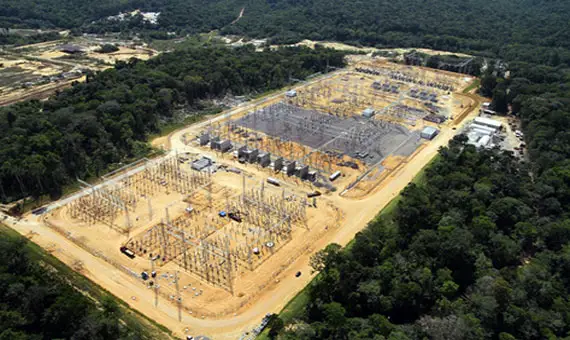Part of the extension of the Tucurui transmission line, the commencement of construction works on the Boa Vista-Manaus transmission line, is currently being driven by a new government decree. The transmission line will run through the Waimiri Atroari’s indigenous reserve, where the project has been facing opposition due to a lack of consultation.
It is said that the initiative will cost around R$ 1,062 billion to execute.
Also read: SuedLink Power Transmission Line Takes Shape
Controversially awarded a preliminary environmental license for the line’s construction, in 2015, Transnorte Energia SA is a consortium formed between the Alupar (51%) and Eletronorte (49%). The consortium has also held the concession for the transmission line lying between Boa Vista and Manaus from 2011.
The transmission line’s capacity
The transmission line’s section is expected to boast a capacity of 500 KW. It will span a total distance of 721 KM. The project will also extend the existing Tucurui transmission line by linking Roraima to the country’s central energy grid.
Currently, the transmission line extends over 1,800 kilometers. It runs from Para to Manaus, Amazonas. Also, the line supplies electricity to households along with industries in Amazon’s Northern region. Located in Vale, Para’s aluminum industries and Manaus’ industrial pole also benefit from the line, with hydroelectricity from the country’s first mega dam in Tucurui.
Initial commencement dates for work on the Boa Vista-Manaus transmission line
As stated before, a decree issued by the new Brazilian government at the beginning of 2019 was to allow construction work on the project to commence immediately. The project is justified as a matter of national interest.
The looming environmental threats that might be brought by the project’s establishment
The transmission line will closely follow the highway. The Brazilian government suggesting that the project will have minimal impacts on the environment.
Construction of 250 towers, access roads, as well as more deforested corridors will need to be considered for both the construction process and maintenance of the line.
Joênia Wapichana, first Brazilian female indigenous congresswoman, who comes from Roraima, lauded the renewable energy plan.
The congresswoman also noted that the transmission line’s environmental impact studies are yet to be complete. She demanded that the affected population be consulted formally.

Leave a Reply